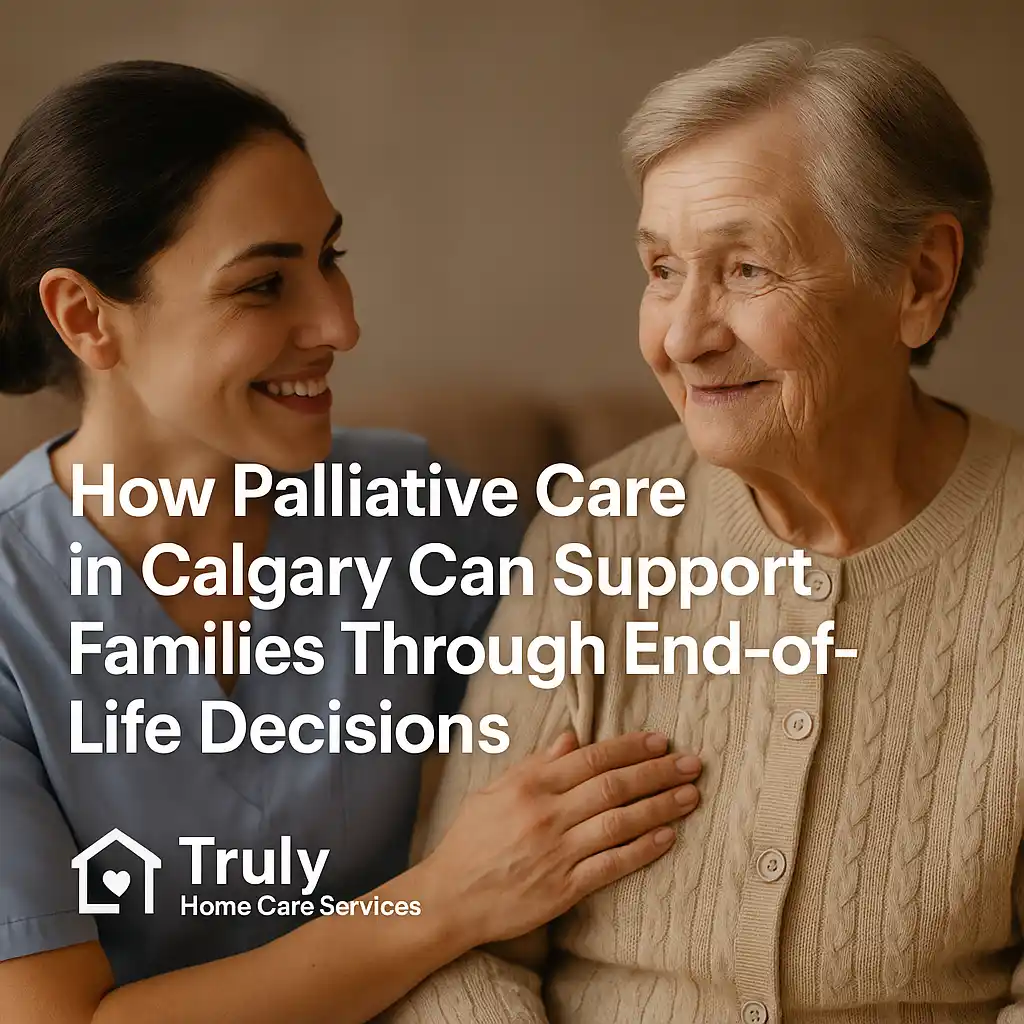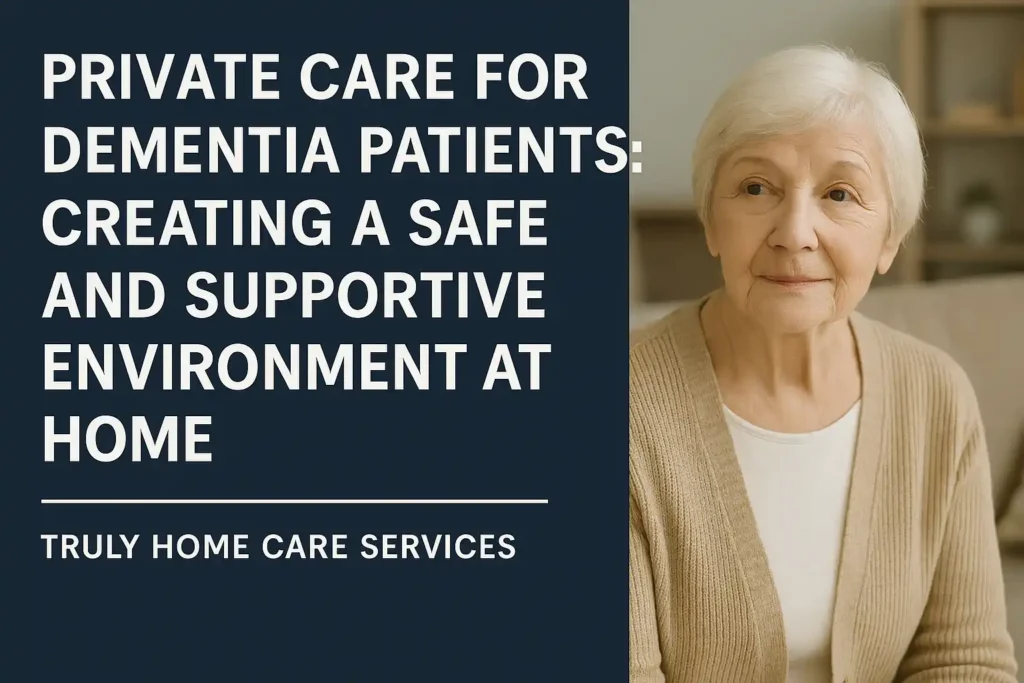In-Home Support For The Visually Impaired
Every year 15 October is celebrated as White cane safety day to recognize the importance of visually impaired or blind people and a commitment to their rights of independence. Our loved ones usually face impairment in their visual sight at older ages. This impairment could be gradual or sometimes rapid. Vision impairment is one of the worst losses that can be endured. Most elderly individuals have a visual impairment or some with complete blindness. Vision loss in older ages is hard to acknowledge by seniors as their senses of smell, taste, and hearing also decline with age. Visually impaired individuals often rely on your support or caregiver to manage their impairment. Most of us usually had not faced the caring of visually impaired seniors and don’t know the best ways to care for loved ones with vision loss. Either you or a hired caregiver should rely on strategies that are specially designed for visually impaired persons. Here we have discussed some strategies for in-home support of your visually impaired loved ones.
Helping seniors accept visual changes:
The first and foremost duty of a caregiver is to help seniors in accepting the visual changes so they can move on. The national eye institute revealed that four conditions contribute to age-related eye diseases.
Visionaware.org’s informational manager confessed that caregivers of visually impaired seniors are very confused with the vision loss of their loved ones. They don’t know how to help their loved ones to accept the reality. Many doctors or therapists said that caregivers and persons with visual impairment should not lose hope and they should hope that there is a life after vision loss.
Good lightening:
The house should be well lighted but be careful of glare. You should use special lights to reduce glare and enhance brightness. The glare can also be reduced by covering the reflective surfaces. Avoid using a bright lamp in a dark room, and the whole room should be well brightened instead of a specific area. Appropriate light for each task should be used like focus light for reading, writing, crafting, etc., or big under-counter lights for illuminating the work area. Daytime lights help in balancing the indoor and outdoor brightness.
Steps to prevent falls and injuries:
Vision loss brings a high risk of falling and the senior may be injured with some serious fall. So, helping seniors avoid falling is a major part of their care. Usage of bright light can reduce the risk of falling for your visually impaired loved ones. Make your home well brighten by replacing normal lights with high voltage lights. You can make changes in your home environment to minimize tripping and slipping risks. Such as;
- Use bright colored tape or light along the stairs.
- Removing small rugs from their way
- Relocate your furniture to walk easier in the home and also remove wheels on furniture
- Keep commonly used items in an accessible range
- High contrast flooring must be replaced or covered
- Wipe the spills immediately
- Keeps things where your loved ones already know
Personal care options:
You have to provide assistance to visually impaired seniors in personal care. You can also hire In-home services for the personal care assistance of your vision-loss loved ones. Personal care usually includes bathing, grooming, dressing, cooking, eating, managing the kitchen etc. Some steps that can be adopted for personal care;
- Maintain existing bathing and grooming routine
- Never leave unattended in the bath
- Adjust the hot water temp
- Allow sufficient time for bathing
- Select comfortable clothing and encourage self-dressing
- Safety assures grooming products
Aids and activities:
Keeping your visually impaired loved ones happy, fresh and comfortable is also the task, along with keeping them safe. As caregivers, you have to face the situations to keep them happy as daily fun activities decrease with vision impairment. You should learn vision aids to help your loved ones. You can arrange a big sized printed book or a large TV screen for spending quality time. A magnifying lens can be used for those things that come in low vision.
Dining options:
You can take some steps listed below during mealtime.
- Make dining time pleasant and minimize disruption
- Encourage self-eating
- Sit with them to avoid any risk like choking
- Serve their favorite food to encourage eating in case of loss of appetite, taste, and malnutrition
- Describe food type
Low vision specialist:
A specialist dealing with low vision can develop customized solutions according to the needs of your loved ones. You can take advice from these experts about low vision aids and how to use them. They can help you in vision rehabilitation with mobility training, keeping things organized, marking and labeling house items.
Moral support:
Moral support can be provided by encouraging visually impaired loved ones to stay active with their friends and spend quality time with their hobbies. You can offer your help to your loved ones with these things. Such moral support makes them more active, confident, and independent in daily routines.
Some visually impaired seniors also tackle hallucinations. These hallucinations are not linked with dementia; instead, they are known as Charles Bonnet syndrome (CBS). Allow seniors to talk freely about these.
Visually impaired seniors feel that they will lose their independence. Keep your loved ones calm and suggest some resources that will raise feelings of independence. By implementing the above tips, you will see the confidence and independence in their ability to tackle the day-by-day tasks.
You can hire in-home care services for your visually impaired loved ones from professional In-home care service agencies like Truly Home Care services when you are not always there with your loved ones. Our caregivers are professional and take special care of visually impaired individuals.




